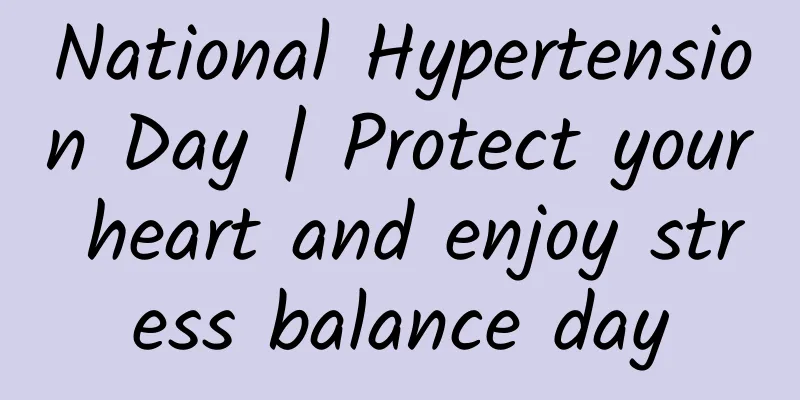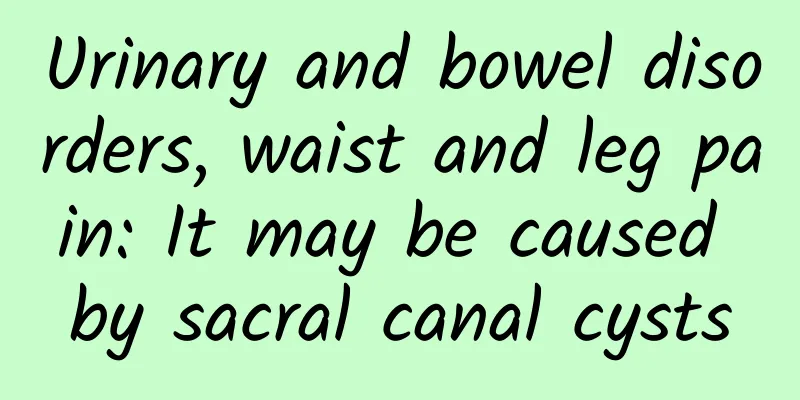National Hypertension Day | Protect your heart and enjoy stress balance day

|
October 8, 2024 is the 27th National Hypertension Day. On this special "Enjoy Pressure Balance Day", we are not only celebrating a festival, but also awakening everyone's cherishment of health, especially for the "silent killer" - hypertension. Imagine that our heart is like a hardworking pumper, and blood vessels are the pipes that transport the water of life. When the water pressure (i.e. blood pressure) in the pipe is continuously too high, not only will the pumper be exhausted, but the entire life system will also be threatened. Imagine your blood vessels are a highway and your blood is the speeding cars. If there are too many cars (blood pressure is too high), the highway will become congested. This is the reality of high blood pressure. Today, let’s take a fun science tour of the “vascular highway” and learn how to keep this highway unobstructed. Hypertension: A “traffic jam” in blood vessels High blood pressure is like a "traffic jam" in the blood vessels. It makes blood flow difficult and the heart has to work overtime to pump blood to ensure that blood can reach every corner of the body. The dangers of high blood pressure: more than just a traffic jam •Heart: If the heart works overloaded for a long time, it may “go on strike”. •Brain: Without proper blood flow, the brain may “short-circuit.” •Kidneys: The filtration system is blocked and the kidneys may "go on strike". Traffic factors affecting high blood pressure Genetics: If high blood pressure runs in your family, you may be born with the "traffic jam" gene. Age: As you age, your blood vessels may become less elastic. Bad lifestyle habits: high-salt diet, smoking, drinking, lack of exercise, etc. may all lead to high blood pressure. Obesity: Excess weight is like adding more vehicles to your vascular highway. Mental stress: Excessive stress is like adding more toll booths on the highway. How to prevent and control hypertension: creating a "smooth" vascular highway 1. Healthy diet: reasonable "refueling" •Low-salt diet: Reducing salt intake is like reducing toll booths on the highway. •Increase potassium intake: Eating more potassium-rich foods, such as bananas, potatoes, spinach, etc., is like adding a "anti-skid strip" to the vascular highway. 2. Regular exercise: regular "maintenance" •Moderate exercise: At least 150 minutes of aerobic exercise per week, such as brisk walking, swimming, cycling, etc., is like regular maintenance of the vascular highway. 3. Maintain a healthy weight: Reduce “vehicles” •Control your weight: Reduce the number of “vehicles” on the vascular highway through proper diet and exercise. 4. Quit smoking and limit alcohol consumption: reduce "violations" •Quit smoking: Smoking is like littering your vascular highway. •Limit your alcohol intake: Drinking too much is like speeding on the highway. 5. Manage stress: Avoid “traffic accidents” •Relaxation techniques: Learning relaxation techniques such as deep breathing, meditation, and yoga is like setting up rest areas on the highway. •Time management: Arrange work and rest time properly to avoid overwork, just like setting a reasonable speed limit on the highway. 6. Monitor blood pressure regularly: monitor "traffic flow" •Home blood pressure monitoring: Regularly measuring your blood pressure at home is like monitoring traffic flow on your vascular highway. Scientific monitoring, stable blood pressure reduction, long-term compliance Blood pressure target standard: Blood pressure of most hypertensive patients (including those with diabetes, coronary heart disease, heart failure or chronic kidney disease with proteinuria) should be controlled below 130/80 mmHg, and that of elderly patients aged 80 years and above can be controlled below 140/90 mmHg. Scientific monitoring of blood pressure: It is encouraged to monitor blood pressure at home, and dynamic blood pressure monitoring can be performed if conditions permit. Blood pressure should be measured in the morning after urination, before taking antihypertensive drugs, and before breakfast, and in the evening before going to bed. Each time, blood pressure should be measured 2-3 times according to the standard. Close attention should be paid to blood pressure above 130/80 mmHg. If blood pressure exceeds 140/90 mmHg three times on different days without taking antihypertensive drugs, hypertension can be diagnosed. Lifestyle intervention should be started as soon as possible and drug treatment should be taken as prescribed by the doctor. Patients with confirmed hypertension should adhere to long-term medication and are encouraged to choose long-acting antihypertensive drugs to ensure that blood pressure is steadily reduced to the standard level. Hypertension is not an invincible enemy. As long as we take the right measures, we can make the vascular highway unobstructed. Let us protect our heart meridians together, enjoy stress-balanced days, and make healthy living our normal state! Author: Zhu Jinmei, deputy chief physician, Changzhou De'an Hospital, member of the Science Popularization Working Committee of the Chinese Rehabilitation Medicine Association |
<<: Orthopedic surgeons, what do you think about “the last fracture in your life”?
Recommend
Reasons for underdeveloped ovarian follicles
The follicle has a very important function. If th...
Diet therapy for pregnant women with internal heat in spring
Getting angry is very common. There are many reas...
What are the symptoms of a cold uterus?
Uterine coldness is a kind of female disease. Now...
How long does it take for a pelvic fracture to heal?
The human body is made up of 206 bones. Each bone...
What are the symptoms of uterine prolapse of 2 cm?
Whether a woman can become pregnant is closely re...
Areola becomes larger after pregnancy
Pregnancy is an exciting thing for female friends...
Why does the urethra opening hurt, bleed, and become red and swollen when rubbed?
When the urethral opening is rubbed, it will be p...
The cold winter is hard to endure. How should patients with rheumatism spend the winter scientifically?
For patients with rheumatoid arthritis, winter is...
How long does it take for stretch marks to appear during pregnancy?
Many pregnant women are troubled by stretch marks...
Heart attack signs women need to know!
The magazine article published a summary of "...
What are the dangers of hyperthyroidism in pregnant women
In daily life, many pregnant women often suffer f...
What dietary treatments are available for poor follicular development?
In our daily life, we can't avoid the occurre...
Belly bloating in late pregnancy
The mood of pregnant women is different in each p...
Can pregnant women eat garlic sprouts?
In terms of diet during confinement, apart from p...
Presbyopia suddenly disappears, white hair suddenly turns black...6 diseases that suddenly "get better" are more dangerous!
In life, if a disease that has troubled you for a...









